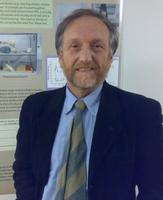About the Organizers

Paola Palanza
- Full Professor of Applied Biology, Unit of Neuroscience, Department of Medicine and Surgery, University of Parma
- Research Director of the Laboratory of Behavioral Biology (Ethomouse) of the Department of Medicine and Surgery
- email: paola.palanza@unipr.it
https://scholar.google.it/citations?hl=en&user=uf0LA4QAAAAJ&view_op=list_works&sortby=pubdate
Paola Palanza received a PhD in Ethology and Animal Biology at the University of Florence (Italy), postdoctoral training at the University of Venice (I) and was a recipient of a CNR-NATO fellowship for advanced research at the Division of Biology of the University of Missouri-Columbia before joining the faculty of Medicine at the University of Parma in 2000 as associate professor. Palanza’s research focuses on the analysis of gene-environment interactions in behavioral development and individual susceptibility to psychiatric disorders, with particular regard to the role of sex differences, maternal environment, endocrine disruptors, and stress. The ultimate purpose is to develop ethologically relevant animal models of psychopathology in rodents, where the goal is to identify etiological factors and replicate symptom complexes. In addition, she has several current collaborations with pediatricians, gynecologists, psychiatrists and endocrinologists on human studies in order to improve translation from preclinical research into clinical research and reverse.

Margaret M. McCarthy
- Professor and Chair Department of Pharmacology
- University of Maryland School of Medicine Baltimore, MD 21201
- MMcCarthy@som.umaryland.edu
Margaret (Peg) McCarthy received a PhD from the Institute of Animal Behavior at Rutgers University, postdoctoral training at Rockefeller University and was a NRC Fellow at NIAAA before joining the faculty of the University of Maryland School of Medicine in 1993. She was a professor in the Department of Physiology before becoming the Chair of the Department of Pharmacology in 2011. She has eceived numerous awards and recognition for her mentoring of graduate students. McCarthy has a long standing interest in the cellular mechanisms establishing sex differences in the brain. She uses a combined behavioral and mechanistic approach in the laboratory rat to understand both normal brain development and how these processes might go selectively awry in males versus females. She is currently Past-President of the Organization for the Study of Sex Differences, serves on the Board of Scientific Councilors of NIMH and was named Researcher of the Year at UMB in 2016.

Stefano Parmigiani
- Full professor of Applied Biology (Department of Medicine - Università di Parma)
- Director of the Ethology and Psychobiology Laboratory of the Evolutionary and Functional Biology Unit (Department of Chemistry, Life Sciences and Environmental Sustainability)
- Director of the International School of Ethology "Dànilo Mainardi" of the Ettore Majorana Foundation and Centre for Scientific Culture (EMFCSC) - Erice (Sicily)
- President of the Italian Society of Ethology (SIE)
- email: stefano.parmigiani@unipr.it
http://scholar.google.it/citations?user=cNKshzEAAAAJ&hl=it
His research interest is characterized by a multidisciplinary approach ranging from Ethology, Psychobiology, Behavioral Endocrinology and Behavioral Neuroscience in animal models (i.e. Causations and functions of male and female mice social aggression; Neurochemical correlates of different forms of aggression: ethopharmacological analysis of maternal aggression, inter-male attack and infanticide; Effects of prenatal exposure to drug, man -made Endocrine Disrupting Chemichals and stress on neuro-endocrine development and socio-sexual behavior of mice) and recently Evolutionary Psychology. (Relationship between personality traits, neuroendocrine responses and competition outcome in martial arts athletes; The role of social stress and individual vulnerability in the genesis of male psychogenic sexual disorders). Member of the Permanent Monitoring Panels (PMP) of Pollution and Sustainable Development of the International Seminars on Planetary Emergencies of the EMFCSC dealing with Developmental Effects of pre and perinatal exposure to Endocrine Disrupting Chemicals on reproduction, physiology, brain and behavior in animals and humans. He organized and directed several workshops of the International School of Ethology e.g. Ethology and Psychobiology of fear and defense; Protection and Abuse of Young in Animals and Man; Ethology & Biomedical Research; Impact of Endocrine Disrupting Chemicals (EDC) on Brain development and Behavior; Social stress: impact on Physiology and Behavior; Neuroeconomics: recent Advances and Future Directions; Adapted Mind, adapted Body: the Evolution of Human Behavior and its Endocrine Regulation; Animal and Human Emotions; Translational Neuroscience and Mental Disorders: bridging the gap between animal models and human condition and as antecedents of the present workshop on rituals, belief and religious mind The Evolution of Morality: the Biology and Philosophy of Human Conscience (2012); What made us Humans?: Biological and Cultural Evolution of Homo Sapiens (2014); The Symbolic animal: Evolution and Neuroethology of Aesthetics (2016) that generated books and /or special issues of International Journals